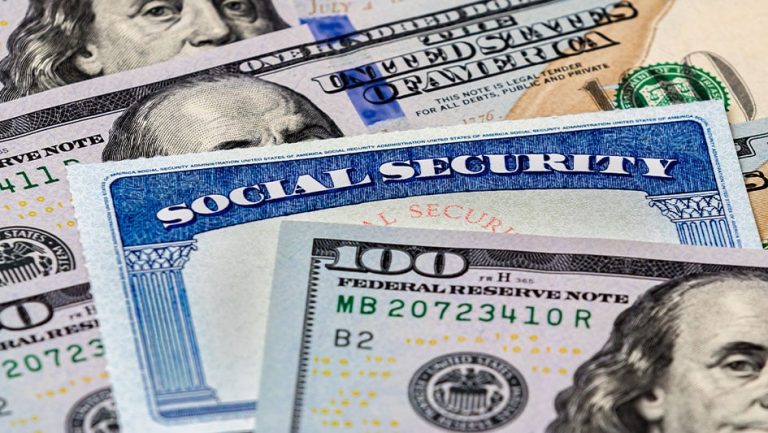5 Hack-It Tricks to Lower Blood Sugar in an Emergency: Home Edition
When it comes to managing blood sugar levels, it is essential to be prepared for unexpected spikes, especially during emergency situations at home. While immediate medical attention is always recommended, there are several home remedies and practices you can rely on to swiftly lower your blood sugar levels. In this authoritative blog post, we will provide you with expert-curated tips and natural remedies that can help you manage emergency situations and bring your blood sugar levels back within a safe range quickly.
Table of Contents
Understanding the Basics
Before delving into the emergency measures, it’s crucial to understand the underlying factors that cause sudden blood sugar spikes and the potential risks associated with uncontrolled hyperglycemia. High blood sugar levels can occur due to various reasons, such as incorrect insulin doses, food choices, stress, or medication complications.
It is important to be aware of the symptoms of high blood sugar, including excessive thirst, frequent urination, fatigue, blurred vision, and increased appetite. Additionally, prolonged periods of elevated blood sugar levels can lead to severe complications like diabetic ketoacidosis (DKA) or hyperglycemic hyperosmolar syndrome (HHS).
Immediate Steps to Take
During an emergency, it’s important to stay calm and take immediate action to manage your blood sugar levels. Here are some essential steps to follow:
Start by assessing the severity of the situation. If you are experiencing severe symptoms such as confusion, vomiting, or difficulty breathing, it’s crucial to call for emergency medical assistance right away. Be sure to have your glucose meter nearby to monitor your blood sugar levels regularly.
Your healthcare provider may have already provided you with specific instructions to manage emergency situations. It’s important to follow their guidance carefully and take appropriate measures such as adjusting your insulin dosage or taking rescue medication, if advised. Make sure you have all the necessary emergency contact numbers and information readily available.
Effective Home Remedies
Proper hydration is key to managing blood sugar levels. Drinking plenty of water throughout the day helps dilute excess sugar in the bloodstream and promotes kidney function. Opt for sugar-free beverages or herbal infusions as an alternative to sugary drinks. Avoid alcohol, as it can lead to fluctuations in blood sugar levels.
Exercise
Light aerobic exercise can help lower blood sugar levels by increasing insulin sensitivity and facilitating glucose uptake by muscles. Engage in activities such as brisk walking or cycling, always ensuring you have your healthcare provider’s approval before starting any exercise regimen. Avoid vigorous exercise during emergency situations unless specifically recommended by your healthcare professional.
Consume High-Fiber Foods
Incorporating high-fiber foods into your emergency diet can help regulate blood sugar levels. Fruits like berries and citrus fruits are excellent choices due to their low glycemic index. Vegetables such as broccoli, spinach, and kale not only provide essential nutrients but also contribute to stabilizing blood sugar. Fiber-rich foods slow down the absorption of carbohydrates, preventing sudden spikes in blood sugar levels.
Utilize Natural Ingredients
Several natural ingredients have been recognized for their potential to lower blood sugar levels. Note that these remedies should be used cautiously and in consultation with a healthcare professional:
Cinnamon: Incorporate cinnamon into your meals, as it may have beneficial effects on blood sugar control. Consider adding it to your morning oatmeal or sprinkling it over a slice of whole grain toast.
Apple cider vinegar: Dilute a tablespoon of apple cider vinegar in a glass of water and consume it before meals. However, be cautious and avoid excessive amounts as it may have adverse effects on your health.
Fenugreek seeds: Soak fenugreek seeds in water overnight and consume them the next morning. You can also use them as a side dish or sprout them for a nutritious addition to salads.
Aloe vera: Consult with a healthcare professional before consuming a small amount of fresh aloe vera gel, as it has shown potential in reducing blood sugar levels. Ensure you are using a safe and pure form of aloe vera.
Indian gooseberry (amla): Amla, or Indian gooseberry, is known for its antioxidant properties. Consume amla juice or powder after consulting with a healthcare professional.
Consider a Low-Glycemic Diet
A low-glycemic diet focuses on consuming foods with a low glycemic index, which helps in maintaining stable blood sugar levels. Avoid high-sugar and refined carbohydrate-based foods, such as sugary drinks, white bread, and processed snacks. Instead, opt for whole grains, lean proteins, and healthy fats to provide sustained energy and prevent drastic blood sugar fluctuations.
Long-Term Prevention Strategies
To effectively manage your blood sugar levels, it’s crucial to keep track of your glucose levels regularly. Follow your healthcare provider’s recommendations for blood glucose monitoring, including the frequency and timing of measurements. Adhere to prescribed medication, insulin regimen, or other treatment plans to ensure optimal blood sugar control.
Adopt a Healthy Lifestyle
Incorporating healthy lifestyle habits plays a pivotal role in long-term blood sugar management. Follow a balanced diet that focuses on portion control and includes a variety of nutrient-rich foods. Engage in regular physical activity as per your healthcare provider’s recommendations to promote overall well-being and improve insulin sensitivity. Lastly, effectively manage stress levels through techniques such as meditation, yoga, or engaging in hobbies that help you relax.
Stay Educated
Continuously educate yourself about the latest research and developments in blood sugar management. Keep yourself updated on new treatment options, technologies, and guidelines. Attend support groups or workshops to enhance your understanding and connect with others who share similar experiences. This knowledge empowers you to make informed decisions and take proactive steps towards better blood sugar management.
Conclusion
During an emergency, it is essential to know how to lower blood sugar levels quickly at home. While these hacks can be useful during a crisis, it is crucial to consult a healthcare professional for personalized advice and guidance. By staying prepared and incorporating these expert-curated tips into your emergency plan, you can effectively manage your blood sugar levels in challenging situations. Remember, your well-being is of utmost importance, and it’s essential to prioritize preventive measures and adopt a healthy lifestyle to ensure long-term blood sugar control.







